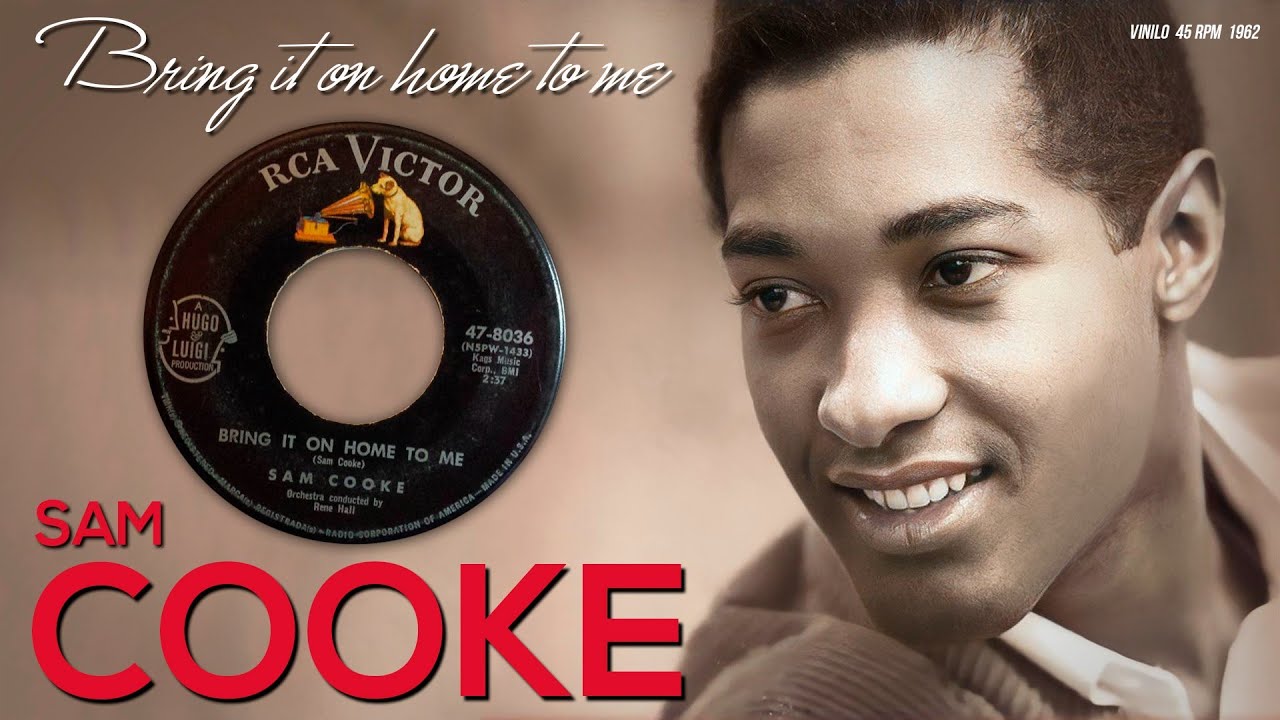lazarus57 - Bring It On Home To Me (Bass and Acoustic Guitar Track)

lazarus57
Jul 04, 2025 07:52am
<p><span style="background-color: rgb(251, 251, 251); color: rgb(33, 37, 41);">ACOUSTIC SONGS ONLY</span></p><p><img src="https://singsnap-cdn.nyc3.digitaloceanspaces.com/message-board/threads/25DC/bb86d7efcf_5ZKF_media.gif"><img src="https://th.bing.com/th/id/R.0e5d6a2468c32c4eb9074e60d68b3d54?rik=cMnASoQiVxSkyg&riu=http%3a%2f%2fwww.bettyloumusic.com%2fcooke2.gif&ehk=wcpw0Xn3aUR9MqxjP8IsIC7EDWWILr%2bkSAwmEhHNhFs%3d&risl=&pid=ImgRaw&r=0" alt="Bring It On Home Sam Cooke You Send Me Chords"></p><p><br></p><p>"<strong>Bring It On Home to Me</strong>" is a song by the American soul singer <a href="https://en.wikipedia.org/wiki/Sam_Cooke" rel="noopener noreferrer" target="_blank" style="color: rgb(51, 102, 204);">Sam Cooke</a>, released on May 8, 1962, by <a href="https://en.wikipedia.org/wiki/RCA_Victor" rel="noopener noreferrer" target="_blank" style="color: rgb(51, 102, 204);">RCA Victor</a>. Produced by <a href="https://en.wikipedia.org/wiki/Hugo_%26_Luigi" rel="noopener noreferrer" target="_blank" style="color: rgb(51, 102, 204);">Hugo & Luigi</a>, and arranged and conducted by <a href="https://en.wikipedia.org/wiki/Ren%C3%A9_Hall" rel="noopener noreferrer" target="_blank" style="color: rgb(51, 102, 204);">René Hall</a>, the song was the <a href="https://en.wikipedia.org/wiki/A-side_and_B-side" rel="noopener noreferrer" target="_blank" style="color: rgb(51, 102, 204);">B-side</a> to "<a href="https://en.wikipedia.org/wiki/Having_a_Party_(Sam_Cooke_song)" rel="noopener noreferrer" target="_blank" style="color: rgb(51, 102, 204);">Having a Party</a>". The song peaked at number two on <a href="https://en.wikipedia.org/wiki/Billboard_(magazine)" rel="noopener noreferrer" target="_blank" style="color: rgb(51, 102, 204);"><em>Billboard</em></a>'s <a href="https://en.wikipedia.org/wiki/R%26B/Hip-Hop_Songs" rel="noopener noreferrer" target="_blank" style="color: rgb(51, 102, 204);">Hot R&B Sides</a> chart, and also charted at number 13 on the <a href="https://en.wikipedia.org/wiki/Billboard_Hot_100" rel="noopener noreferrer" target="_blank" style="color: rgb(51, 102, 204);"><em>Billboard</em> Hot 100</a>. The song has become a <a href="https://en.wikipedia.org/wiki/Pop_standard" rel="noopener noreferrer" target="_blank" style="color: rgb(51, 102, 204);">pop standard</a>, <a href="https://en.wikipedia.org/wiki/Cover_version" rel="noopener noreferrer" target="_blank" style="color: rgb(51, 102, 204);">covered</a> by numerous artists of different genres. It is one of <a href="https://en.wikipedia.org/wiki/The_Rock_and_Roll_Hall_of_Fame%27s_500_Songs_that_Shaped_Rock_and_Roll" rel="noopener noreferrer" target="_blank" style="color: rgb(51, 102, 204);">The Rock and Roll Hall of Fame's 500 Songs that Shaped Rock and Roll</a>.</p><p>Background<span style="color: rgb(84, 89, 93);">[</span><a href="https://en.wikipedia.org/w/index.php?title=Bring_It_On_Home_to_Me&action=edit&section=1" rel="noopener noreferrer" target="_blank" style="color: rgb(51, 102, 204);">edit</a><span style="color: rgb(84, 89, 93);">]</span></p><p>"Bring It On Home to Me", like its A-side, "Having a Party", was written while Cooke was on tour for Henry Wynn. The song was initially offered to fellow singer <a href="https://en.wikipedia.org/wiki/Dee_Clark" rel="noopener noreferrer" target="_blank" style="color: rgb(51, 102, 204);">Dee Clark</a>, who turned it down.<a href="https://en.wikipedia.org/wiki/Bring_It_On_Home_to_Me#cite_note-linernotes-3" rel="noopener noreferrer" target="_blank" style="color: rgb(51, 102, 204);"><sup>[3]</sup></a> While in <a href="https://en.wikipedia.org/wiki/Atlanta" rel="noopener noreferrer" target="_blank" style="color: rgb(51, 102, 204);">Atlanta</a>, Cooke called co-producer <a href="https://en.wikipedia.org/wiki/Luigi_Creatore" rel="noopener noreferrer" target="_blank" style="color: rgb(51, 102, 204);">Luigi Creatore</a> and pitched both numbers; Creatore liked the songs, and booked a recording session in <a href="https://en.wikipedia.org/wiki/Los_Angeles" rel="noopener noreferrer" target="_blank" style="color: rgb(51, 102, 204);">Los Angeles</a>, scheduled for two weeks later.<a href="https://en.wikipedia.org/wiki/Bring_It_On_Home_to_Me#cite_note-db-4" rel="noopener noreferrer" target="_blank" style="color: rgb(51, 102, 204);"><sup>[4]</sup></a> The session's mood "matched the title" of the song, according to biographer Peter Guralnick, as many friends had been invited. "It was a very happy session," recalled engineer <a href="https://en.wikipedia.org/wiki/Al_Schmitt" rel="noopener noreferrer" target="_blank" style="color: rgb(51, 102, 204);">Al Schmitt</a>. "Everybody was just having a ball. We were getting people out there [on the floor], and some of the outtakes were hilarious, there was so much ad lib that went on."<a href="https://en.wikipedia.org/wiki/Bring_It_On_Home_to_Me#cite_note-db-4" rel="noopener noreferrer" target="_blank" style="color: rgb(51, 102, 204);"><sup>[4]</sup></a> <a href="https://en.wikipedia.org/wiki/Ren%C3%A9_Hall" rel="noopener noreferrer" target="_blank" style="color: rgb(51, 102, 204);">René Hall</a> assembled an eighteen-piece backing group, "composed of six violins, two violas, two cellos, and a sax, plus a seven-piece rhythm section that included two percussionists, two bassists, two guitars, and a piano."</p><p>The song is a significant reworking of the 1959 single "I Want to Go Home" by <a href="https://en.wikipedia.org/wiki/Charles_Brown_(musician)" rel="noopener noreferrer" target="_blank" style="color: rgb(51, 102, 204);">Charles Brown</a> and <a href="https://en.wikipedia.org/wiki/Amos_Milburn" rel="noopener noreferrer" target="_blank" style="color: rgb(51, 102, 204);">Amos Milburn</a>,<a href="https://en.wikipedia.org/wiki/Bring_It_On_Home_to_Me#cite_note-5" rel="noopener noreferrer" target="_blank" style="color: rgb(51, 102, 204);"><sup>[5]</sup></a><a href="https://en.wikipedia.org/wiki/Bring_It_On_Home_to_Me#cite_note-6" rel="noopener noreferrer" target="_blank" style="color: rgb(51, 102, 204);"><sup>[6]</sup></a> and it retains the <a href="https://en.wikipedia.org/wiki/Gospel_music" rel="noopener noreferrer" target="_blank" style="color: rgb(51, 102, 204);">gospel</a> flavor and call-and-response format; the song differs significantly in that its refrain ("Bring it to me, bring your sweet lovin', bring it on home to me") is overtly secular.<a href="https://en.wikipedia.org/wiki/Bring_It_On_Home_to_Me#cite_note-db-4" rel="noopener noreferrer" target="_blank" style="color: rgb(51, 102, 204);"><sup>[4]</sup></a> The song was the first serious nod to his gospel roots ("[He] felt that he needed more weight, that that light shit wouldn't sustain him," said <a href="https://en.wikipedia.org/wiki/J._W._Alexander_(musician)" rel="noopener noreferrer" target="_blank" style="color: rgb(51, 102, 204);">J.W. Alexander</a>).<a href="https://en.wikipedia.org/wiki/Bring_It_On_Home_to_Me#cite_note-linernotes-3" rel="noopener noreferrer" target="_blank" style="color: rgb(51, 102, 204);"><sup>[3]</sup></a> The song was aiming for a sound similar to Cooke's former group, the Soul Stirrers.<a href="https://en.wikipedia.org/wiki/Bring_It_On_Home_to_Me#cite_note-db-4" rel="noopener noreferrer" target="_blank" style="color: rgb(51, 102, 204);"><sup>[4]</sup></a> The original, unreleased first take includes vocals from <a href="https://en.wikipedia.org/wiki/Lou_Rawls" rel="noopener noreferrer" target="_blank" style="color: rgb(51, 102, 204);">Lou Rawls</a>, J.W. Alexander, Fred Smith (former assistant <a href="https://en.wikipedia.org/wiki/A%26R" rel="noopener noreferrer" target="_blank" style="color: rgb(51, 102, 204);">A&R</a> rep at <a href="https://en.wikipedia.org/wiki/Keen_Records" rel="noopener noreferrer" target="_blank" style="color: rgb(51, 102, 204);">Keen Records</a>), and "probably" the Sims Twins. A second, final take leaves Lou Rawls as the only echoing voice.<a href="https://en.wikipedia.org/wiki/Bring_It_On_Home_to_Me#cite_note-db-4" rel="noopener noreferrer" target="_blank" style="color: rgb(51, 102, 204);"><sup>[4]</sup></a></p><p>Personnel<span style="color: rgb(84, 89, 93);">[</span><a href="https://en.wikipedia.org/w/index.php?title=Bring_It_On_Home_to_Me&action=edit&section=2" rel="noopener noreferrer" target="_blank" style="color: rgb(51, 102, 204);">edit</a><span style="color: rgb(84, 89, 93);">]</span></p><p>"Bring It On Home to Me" was recorded on April 26, 1962, at RCA Studio 1 in the <a href="https://en.wikipedia.org/wiki/Hollywood,_Los_Angeles" rel="noopener noreferrer" target="_blank" style="color: rgb(51, 102, 204);">Hollywood</a> area of <a href="https://en.wikipedia.org/wiki/Los_Angeles" rel="noopener noreferrer" target="_blank" style="color: rgb(51, 102, 204);">Los Angeles</a>, California.<a href="https://en.wikipedia.org/wiki/Bring_It_On_Home_to_Me#cite_note-linernotes-3" rel="noopener noreferrer" target="_blank" style="color: rgb(51, 102, 204);"><sup>[3]</sup></a> The engineer present was <a href="https://en.wikipedia.org/wiki/Al_Schmitt" rel="noopener noreferrer" target="_blank" style="color: rgb(51, 102, 204);">Al Schmitt</a>, and the session was conducted and arranged by <a href="https://en.wikipedia.org/wiki/Ren%C3%A9_Hall" rel="noopener noreferrer" target="_blank" style="color: rgb(51, 102, 204);">René Hall</a>. The musicians also recorded "<a href="https://en.wikipedia.org/wiki/Having_a_Party_(Sam_Cooke_song)" rel="noopener noreferrer" target="_blank" style="color: rgb(51, 102, 204);">Having a Party</a>" the same day. Credits adapted from the <a href="https://en.wikipedia.org/wiki/Liner_notes" rel="noopener noreferrer" target="_blank" style="color: rgb(51, 102, 204);">liner notes</a> to the 2003 compilation <a href="https://en.wikipedia.org/wiki/Portrait_of_a_Legend:_1951%E2%80%931964" rel="noopener noreferrer" target="_blank" style="color: rgb(51, 102, 204);"><em>Portrait of a Legend: 1951–1964</em></a>.<a href="https://en.wikipedia.org/wiki/Bring_It_On_Home_to_Me#cite_note-linernotes-3" rel="noopener noreferrer" target="_blank" style="color: rgb(51, 102, 204);"><sup>[3]</sup></a></p><p><br></p><p><sup style="color: rgb(51, 102, 204);"><span class="ql-cursor"></span></sup><img src="https://tse4.mm.bing.net/th/id/OIP.pEqF4nqCxLEvQQQ_RfDpoQAAAA?r=0&rs=1&pid=ImgDetMain&o=7&rm=3" alt="Bring It On Home To Me - Sam Cooke | Shazam"></p>
